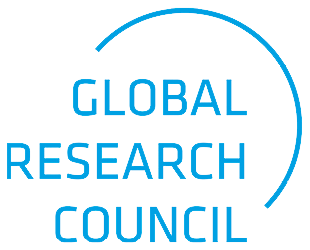Science helps find solutions for sustainable development
US economist and sustainability expert Jeffrey Sachs stressed the need to integrate science, engineering and public policy in a video address to the annual meeting of the Global Research Council in São Paulo.
By José Tadeu Arantes | Agência FAPESP – The role of scientific research and the knowledge community in the promotion of sustainable development was the subject of a videoconference delivered by US economist and political analyst Jeffrey Sachs on May 3, 2019, during the 8th Annual Meeting of the Global Research Council (GRC).
The presentation took place on the last day of the GRC summit, which gathered heads of funding research agencies from some 50 countries on all five continents. The event was organized by the São Paulo Research Foundation (FAPESP), Argentina’s National Scientific and Technical Research Council (CONICET) and the German Research Foundation (DFG).
Sachs is the author of the best-seller The End of Poverty, among other books, and one of the world’s leading authorities on sustainable development. Now 64 years old, Sachs has served as Special Advisor to UN Secretary Generals Kofi Annan, Ban Ki-moon and Antonio Guterres. He has also advised heads of state and governments in Latin America, Africa, Asia and Eastern Europe.
For 14 years (2002-16), Sachs directed the Earth Institute at Columbia University, where he is University Professor, the highest rank Columbia bestows on faculty.
In his videoconference Sachs defined sustainable development as economic development combined with social justice and environmental sustainability.
This triad, he said, supplied the framework for the Paris Agreement adopted by 195 countries and the European Union at the United Nations Climate Change Conference in 2015, and for the 17 Sustainable Development Goals (SDGs) set by the UN General Assembly in the same year.
“The reason why sustainable development has become a framework for the UN is a crisis. The crisis is that the world economy does not meet economic, social and environmental objectives in a holistic manner. The world economy is rather effective at producing economic growth, but it’s rather ineffective at producing social justice and disastrously contrary to environmental sustainability,” Sachs said.
The result, he went on, is a world economic system that grows, but grows unequally and unsustainably. For Sachs, this requires a change not only in public policies but also in technologies, which must be guided by basic science. Integrating basic science, engineering, and what he called “the policy sciences” in order to be able to address the key issues faced by today’s world is a huge challenge for the knowledge community, which must lead the process because governments are intellectually unprepared and politically uninterested in tackling problems as serious as global climate change.
“We need the science to make evident the environmental constraints and what kinds of solutions to the environmental crisis are necessary. Without the science we’re completely lost. We wouldn’t even know that the planet is warming, and we certainly wouldn’t understand the climatology and the dimensions of the challenge. We’d have no idea how to map a pathway toward safety,” he said.
According to Sachs, even a temperature rise of less than 1.5 ºC by 2050, the best global warming scenario foreseen by the Paris Agreement, is “very dangerous” and will not prevent disintegration of the ice sheets. He stressed the need for full “decarbonization” of the worldwide energy system, reducing emissions to zero by midcentury. “We need the engineers to tell us how that can be done. Indeed, the pathways for deep carbonization are now being elaborated by engineering experts,” he said.
Deep decarbonization was the first and most pressing item on a list of six “challenges of sustainable development” presented by Sachs in his videoconference. These are all “major areas of research”, he stressed. The other five challenges were sustainable land use and food production, preserving the planet’s last pockets of biodiversity, such as the Amazon forest; health and well-being, especially control of communicable and non-communicable diseases; education; sustainable urbanization, considering that some 2.5 billion people will join the cities in the decades ahead, so that today’s urban inhabitants and their descendants will comprise 70% of the world population by midcentury; and information technology, with emphasis on governance of the “tech giants” to preserve freedom and privacy.
To address these challenges, Sachs repeatedly stressed, knowledge must be integrated across basic science, engineering and public policy. “We need all three disciplinary approaches working in an integrated manner,” he said.





